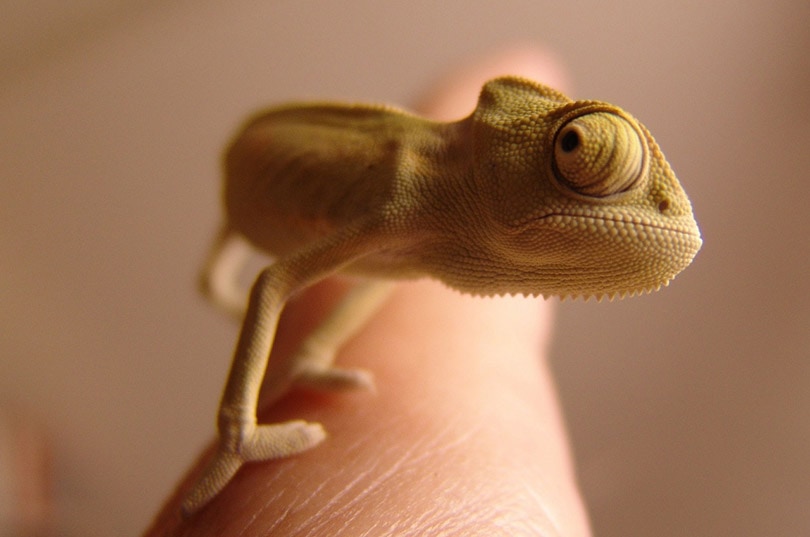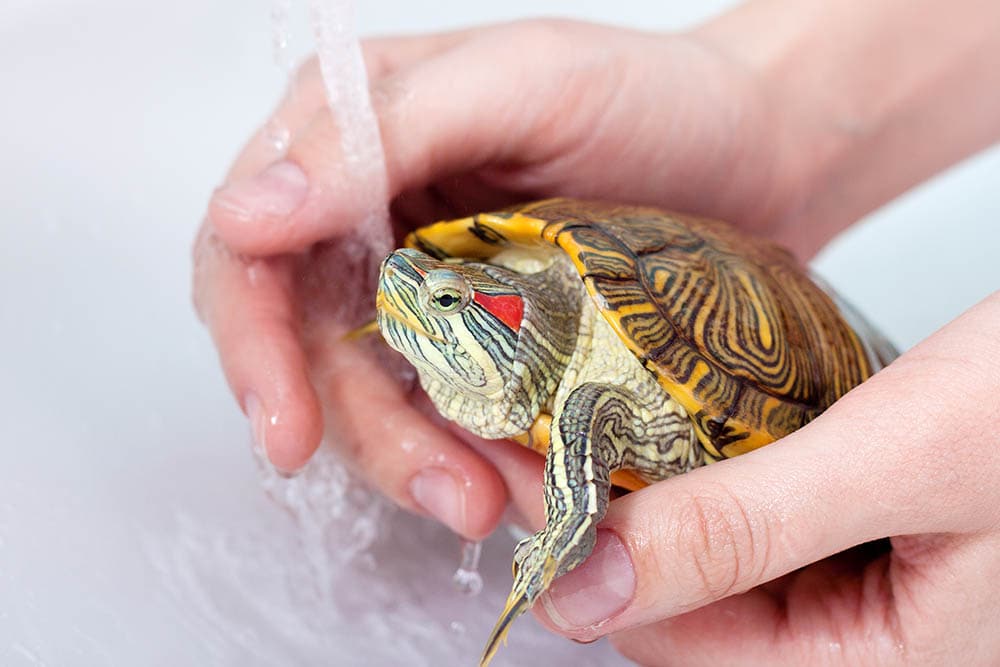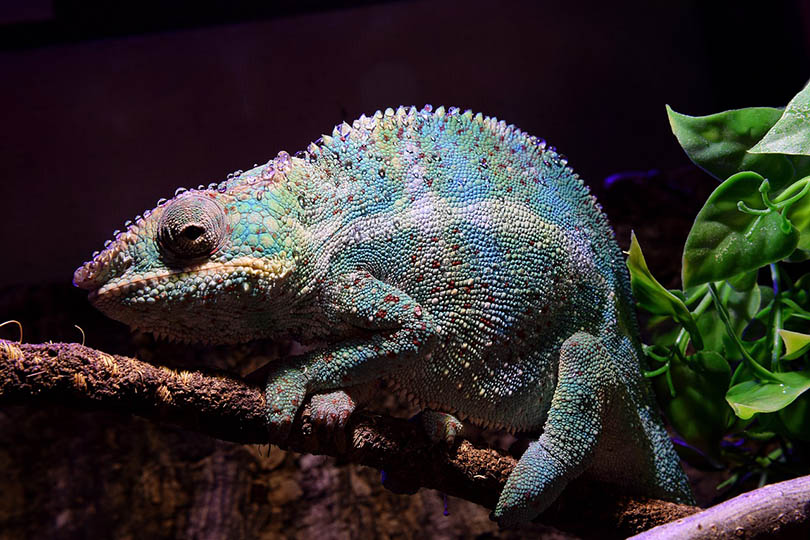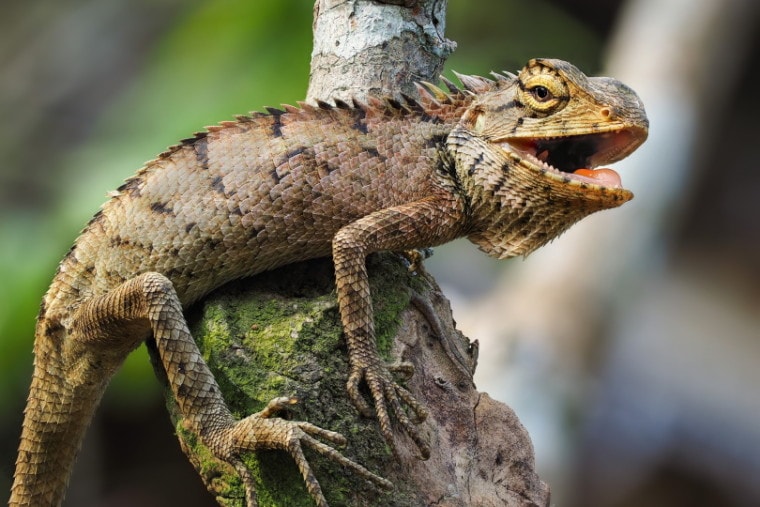
Iguanas are prehistoric-looking reptiles that are popular among reptile keepers and enthusiasts. Many people enjoy keeping them as pets. If you’ve seen an iguana, you know that these lizards can grow to be quite large.
If you’ve only seen photos of iguanas, you might be wondering if they have teeth. In many photos, the lizards appear to only have tongues inside their mouths. These reptiles like to eat leaves, plants, and flowers. They follow a mostly herbivorous diet. Due to this and the fact that they appear toothless, a myth was started that iguanas don’t have teeth.
But iguanas do have teeth, even if they’re difficult to see. They will certainly be felt if this lizard decides to bite you! Their teeth are small and transparent, which perpetuates the myth that they don’t exist.
Let’s take a closer look at the teeth of an iguana and how many of them they have.
 Why Are Their Teeth So Small?
Why Are Their Teeth So Small?
Some reptiles have large, noticeable teeth that they use for capturing and eating prey. Since iguanas are mainly vegetarians, they don’t need a predator’s teeth. They eat leaves and flowers in the wild, and their teeth are well-suited for ripping vegetation apart.
Iguanas also have large mouths. The transparency of their teeth helps make them appear smaller than they actually are. They are not teeth for meat-eaters, but they work well for the iguana’s needs.
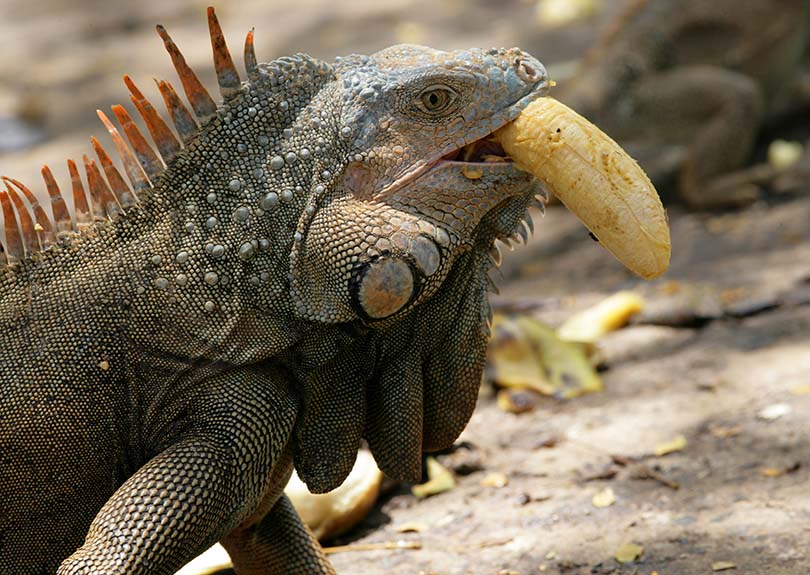
What Do Their Teeth Look Like?
Iguana teeth are triangularly shaped and have serrated edges. They are translucent, broad in length, and thin in width. They may not look impressive, but they are not something that you want to come into contact with.
How Many Teeth Do Iguanas Have?
The mouth of the iguana is divided into four sections. Each section has between 20 and 30 teeth. This means the inside of an iguana’s mouth is home to 80 and 120 teeth. That is a large number of teeth for a lizard that appears to be toothless!
Some reptiles have acrodont teeth, meaning the teeth are fused to the jawbone. Others have thecodont teeth, which are fused into sockets in the jawbone. Pleurodont teeth are common in lizards. These teeth are anchored to the inside of the jaw. They aren’t fused to the bone. Iguanas are pleurodonts. Their teeth, once lost, can repeatedly grow back in their original spots.
Do Iguanas Lose Their Teeth?
Iguanas are born with teeth and these are extremely sharp. Since they are born without parental assistance and forced to fend for themselves, their teeth enable them to eat immediately on their own. They shed and replace their teeth throughout their lifetime.
The number of teeth that grow back in can also vary. One month, the iguana could have 80 teeth, and the next month, they could have 100 teeth. These teeth shed and regrow about five times a year. This means the iguana can regrow 500 teeth a year!
If you own an iguana, don’t be alarmed to find the teeth that they have shed in their enclosure. This is a common occurrence and you’re bound to come across a few eventually.
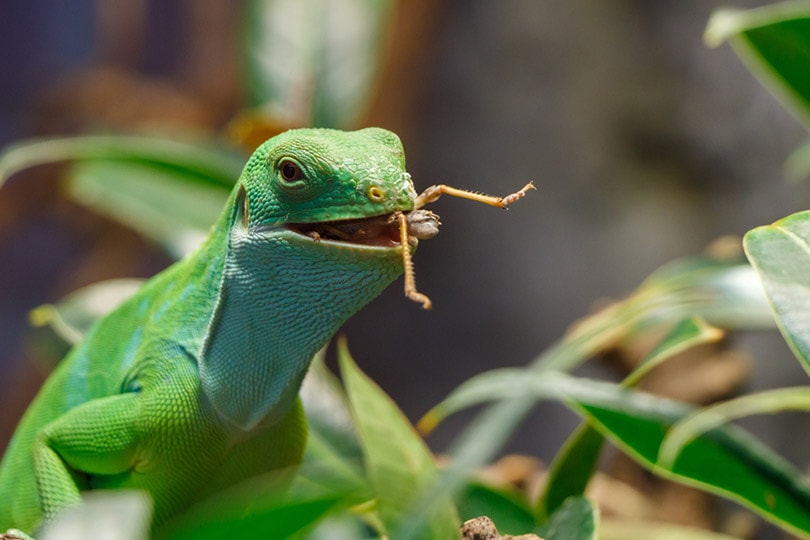
Why Are Their Teeth So Sharp?
Iguanas use their teeth for eating, which involves ripping apart plant matter and other vegetation. They also use these teeth for defense. Iguanas’ teeth can puncture the skin of other reptiles and animals, including humans.
While iguanas normally only bite in a manner of self-defense, their bites can still do damage. Iguanas can bite through a coconut husk, so they can easily bite down to the bone of a human. It’s also important to note that iguana saliva could carry the salmonella bacteria, so if you are bitten by an iguana, it’s important to seek treatment right away and have an antiseptic on hand. Iguanas also carry venom, but it’s mild and not harmful to humans.
Iguanas can bite more than once and may also leave teeth behind in the skin of their victim.
Do Iguanas Have Dental Problems?
Since iguanas have teeth that regularly replace themselves, the teeth don’t have much time to develop any dental issues. They aren’t in the iguana’s mouth long enough to decay. The most common issue that they can develop is mouth rot. This occurs when food gets stuck between the teeth, makes tiny cuts in the gums, and causes an infection.
Treatment for mouth rot includes antibiotics and in some cases, surgery. Mouth rot must be treated by a veterinarian, so if you suspect that your iguana is suffering from this, bring them in quickly. Symptoms include not eating, swollen gums, and pus or drainage from the mouth or nose. This infection can spread to other parts of the body and may turn into pneumonia, so it’s important to get your lizard checked out if they show signs of this condition.
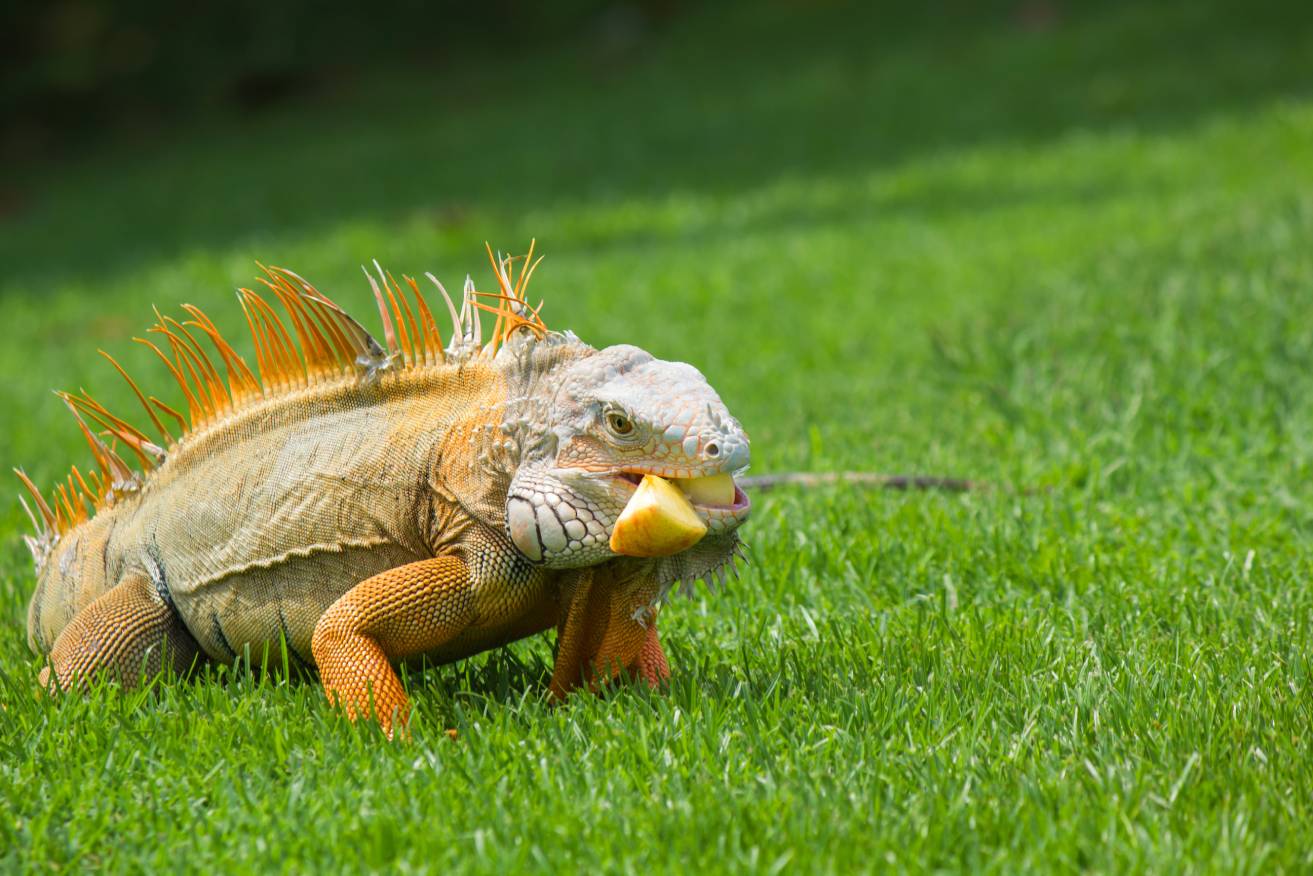
Preventing Mouth Rot
Regular vet visits for your iguana will help prevent mouth rot because their mouths will be examined. The vet can see anything that is concerning or if there is any food stuck between their teeth.
A proper diet for your iguana will help them be healthy enough to deal with any potential infection that may arise. Keep their enclosure clean and disinfected. Remove any uneaten food. Your iguana’s environment should always be at the proper temperature and humidity level.
Have your vet show you the proper way to open your iguana’s mouth. Doing so without being trained can cause damage to their jaws. Once you know how to do this, you can check their mouth for any food particles that are stuck or cuts in the mouth that could lead to infection.
Will My Iguana Bite Me?
Iguanas typically only bite when they feel threatened and like they need to protect themselves. If they are stressed or feeling scared, they may even strike without biting as a way to give a warning.
In addition, they may stand up as tall as they can and move their head around, giving the impression that they are bigger than they are. If you back off at that point, the iguana should calm down.
Biting without reason is uncommon with iguanas. If it does happen, don’t pull your hand away quickly, as this could cause more damage. Remember to treat the bite with antiseptic and seek treatment if necessary. Bacteria live in an iguana’s mouth, so consult your doctor if you have any questions.

Conclusion
Iguanas do have teeth, even though they can appear toothless. They are born with them. Their teeth are small and transparent, making them difficult to see. They are also sharp with serrated edges.
Iguanas can have anywhere from 80 to 120 teeth in their mouth at any given time. These teeth are frequently shedding and regrowing. The number of teeth in their mouth doesn’t stay the same for long. Iguanas regrow their teeth five times a year.
Since their teeth are replaced so often, it doesn’t give them a long time to develop dental issues. The biggest thing that you need to watch out for is mouth rot. If you suspect that your iguana has this condition, they need to be seen by a veterinarian right away.
Iguanas usually use their teeth to eat, but they can also use them in self-defense. If they bite humans, they can cause a great deal of damage. Luckily, iguanas don’t bite often or without reason.
By having your iguana checked by a veterinarian regularly, you can help keep them and their teeth healthy and strong.
Featured Image Credit: ThuyHaBich, Pixabay
 Why Are Their Teeth So Small?
Why Are Their Teeth So Small?